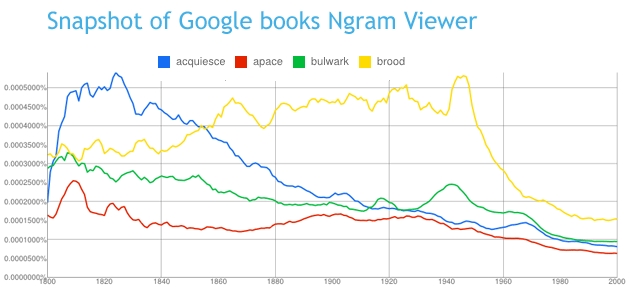Google shows we're killing our language

Take heed: those erstwhile folks at Google deem our language is set to falter. Forsooth, we must abide a dialect that is destined to become devoid of imagination.
The truth is, we're using fewer and fewer words, and Google has the figures to show it. Its Ngram project has scanned about 4 per cent of the world's texts, published in English, Spanish and Hebrew, between 1800 and 2008.
Researchers, led by Joel Tenenbaum from Boston University, analysed the texts to discover a dictionary of more than 10 million words, but also found that the amount in use has rapidly declined in recent times. Naturally, historical context has a big part to play — for example, Tenenbaum points to the decline of the term "The Great War" since 1939, when people realised it wasn't really going to be the war to end all wars.

(Credit: Phil Dobbie/ZDNet Australia)
For those with time on their hands, Google's Ngram viewer is an excellent tool for tracking the growth or decline of words used in literature. As you can see, "brood" fell out of favour in the 1950s and we don't "acquiesce" as much as we did in the 1800s.
If you want to test your own vocabulary run your text through this word frequency counter. It shows that there are 169 different words in this article, compared to just 47 in the lyrics to Kylie Minogue's "Can't Get You Out of My Head".
It's ironic that Google is the company helping to highlight our ever-shrinking vocal repertoire. Could our drive for keyword density to optimise search be part of the problem?